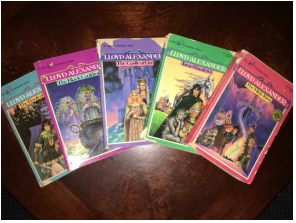 I would imagine most of us can name a defining book (or series of books) from our childhood. And I'm not talking about a story that you loved or a book that you just couldn't put down. These books go far deeper, and they end up being far more important to us. These are the stories that are woven into our character. They are the experiences we've never truly had (only existing in our imagination), but nevertheless they are the stories that have shaped us - transformed us - into the people we are today. They are the adventures and mysteries and romances that we carry with us forever. For some of my friends, that story is The Chronicles of Narnia. They've grown up walking through the forest with Aslan and fighting next to Jewel in the Last Battle. For my wife, her defining story is Anne of Green Gables and for my son, Aidan, it's Percy Jackson. There's a whole generation defined by J.K. Rowling and Harry Potter. But my story is slightly more obscure. I grew up in Prydain. The Prydain Chronicles is a five book series written by Lloyd Alexander. Drawing on Welsh Mythology and The Mabinogion, Alexander writes about a young assistant pig-keeper named Taran as he goes on unlikely adventures and grows to become a man. And at the heart of all five novels is the group Alexander affectionately terms "the Companions" -- Taran, Princess Eilonwy, Fflewddur Fflam, Doli, and the ever-faithful Gurgi. And I remember sobbing at the end of the fifth and final book, The High King, because "the companions" had become my companions and now are adventures were at an end -- I knew I could always read the stories again, but then they would only be a memory. It would be different. Forever. So how do The Prydain Chronicles influence Kira, the Rainbow Princess? Just like Taran our assistant pig-keeper, Kira is not alone. She will depend upon a group of steadfast friends. And hopefully, if there's a heart to this novel, it will be found in those friendships. And maybe one day in the distant future Kira will be important to someone else - it may serve as an adventure; an experience; a companion. Maybe. But even writing that line down - trying to imagine Kira meaning as much to someone as Taran means to me - it seems like too much to even hope for. . .  I started re-watching Chuck this week on Netflix with the kids, and I almost forgot what an incredible show it was! I'm not sure it technically qualifies as a "creative influence" when it comes to my own writing, but there are definitely motifs running throughout the show that I see repeated in ANOM: Awakening. First, a quick review. . . If you've never seen an episode of Chuck, do yourself a favor and go binge-watch the entire first season. I can wait. For the rest of you, I'm sure you remember that Chuck is a show about a normal guy (Chuck Bartowski) who gets the contents of a top-secret government computer downloaded into his brain. Mayhem ensues as Chuck helps the CIA and the NSA keep the world safe from evil . . . all while maintaining his cover of hapless, mega-computer store, "Nerd Herd" employee. Needless to say, the magic of Chuck lies almost entirely with its titular hero. Watching Zachary Levi (in the role of Chuck Bartowski) straddle these two disparate worlds makes the show fun to watch. He is "us", with all of his flaws, insecurities, and mistakes. He can't save the world with his Kung-Fu, but he can save the world thanks to his best friend's intricate knowledge of Call of Duty. Chuck is a normal guy making use of his limited skills to do the best he can. . . and that theme is universal. That's all of us, everyday! So how does that translate to my book? There is no "Superman" in ANOM: Awakening. There is no Swiss Army Knife kind of hero capable of doing everything on his own like a James Bond super-spy. Everyone in my book has weaknesses -- sometimes dramatic weaknesses. Weaknesses that stop them from being the heroes (and sometimes even the people) they hope to be. They're just normal people making use of their limited skills, trying to do the best they can. Just like the rest of us. Just like Chuck. 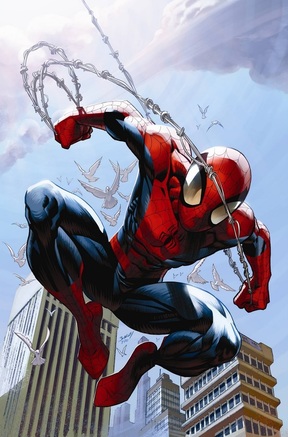 Two weeks from LAUNCH DAY and I think it's only fitting that I acknowledge one of my major creative influences, the Amazing Spider-Man. When people ask me to describe ANOM: Awakening I tell them it's like a comic book for adults, only much longer and without any pictures. And honestly, that's exactly what I tried to create. I wanted to write the kind of novel that I would enjoy reading myself. I love comic books! I love superheroes! And my hands-down, absolute favorite is your friendly neighborhood Spider-Man. I fell in love with Spider-Man during the fourth grade (and even though that's not 100% accurate. I was a big fan of Spider-Man and his Amazing Friends -- the cartoon with Spidey, Iceman, and Firestar -- but I digress). But in fourth grade my parents got me a subscription to The Amazing Spider-Man, and I never looked back. My first issue, all those years ago, featured a forgettable character named Cardiac (well-respected surgeon by day/vigilante at night capable of tapping into the electricity of his own pace-maker). Then, just yesterday, I picked up my latest issue, Civil War 2: Amazing Spider-Man #1 from our local comic shop, Crossroads Comics. So how have 25 years of Spider-Man influenced my writing and my novel? To answer that question, I need to start by explaining why I love Spider-Man in the first place. For me, the story of Spider-Man has always revolved around the concept of self-sacrifice. We're all familiar with the Spider-Man mantra, "With great power there must also come great responsibility." But do we ever stop and ask ourselves, "a great responsibility to what?" When we see the question, I think the answer becomes obvious. Spider-Man feels an overwhelming responsibility to serve the greater good, often at the price of tremendous self-sacrifice. This altruism by Peter Parker is present in a way that's missing from the other two BIG superheroes. Batman seems to be motivated by a near-psychotic need to avenge his murdered family. And Superman is more "Superman" than Clark Kent. In other words, they exist at polar ends of the same spectrum. Batman is meeting his own selfish need for vengeance and Superman is so perfect that of course he's fighting for truth, justice, and the American way. In other words, in a real sense, Batman and Superman are both doing EXACTLY what they want to do. Spidey is different. For as much fun as he seems to be having web-swinging through the city, there always exists within Spider-Man the tension between what Peter Parker "wants" to do, and what Spider-Man "has" to do. So what does this mean for my novel, ANOM: Awakening? After 25 years with Spider-Man, my idea of heroism has become inextricably linked to the idea of sacrifice and that theme comes up again and again in my writing. Spider-Man books are full of action, and action is great! Hopefully you read some of the action sequences in my book and think they're awesome. But action, by itself, is hollow. It's the choice -- the decision to act in the face of great personal sacrifice -- that makes any action heroic. In ANOM: Awakening characters are faced with these choices again and again, and just like in real life, they don't always get it right. But when they do . . . that's heroic. And hopefully that's worth reading about.  If you come closer I'll tell you a secret . . . The Walking Dead is NOT about zombies. There are certainly zombies on the show. Lots of zombies. And they seem to get grosser with every passing season as their humanity continues to rot away. . . but that's not what the show's about. Not even close. The zombies are there as a backdrop. They're part of the setting. They are the blank canvas upon which the real story of The Walking Dead can unfold. The zombies are a MacGuffin. For the uninitiated, a MacGuffin is that most-paradoxical item in all of literature. A term popularized by none other than Alfred Hitchcock, the MacGuffin is both essential to the plot and completely irrelevant. It is the Maltese Falcon, the mistaken identity in North by Northwest, the plans for the Death Star hidden in R2-D2. It's the Holy Grail, the Ark of the Covenant, the Sankara Stones, and even (regrettably) the Crystal Skull. Take any of those treasures away and you're still left with Indiana Jones. In The Walking Dead it's zombies. In ANOM: Awakening it's genetic anomalies with super-human powers. So what is The Walking Dead really about if not zombies . . . ? It's a story about relationship. Minor Spoilers ahead for The Walking Dead season 4 I'm a big fan of The Walking Dead but the latter half of season 4 is hands-down my favorite. In the final episode of the first half of season 4 (episode 8 titled "Too Far Gone") the relative safety of the prison is shattered and our rag-tag band of fearless survivors are scattered to the wind. Thankfully, in episode 9 titled, appropriately enough, "After" the survivors start to find each other again. They form up in groups of two or three, and the rest of the season is spent with these smaller groups trying to reconnect and find each other. But in these imperfect relationships - the survivors are thrown together out of circumstance rather than their choice - character is revealed. Those relationships are the universal truth in the series - the reality that everyone can understand. It's family, and friends, and strangers, and enemies . . . all thrown into stark relief BECAUSE OF the MacGuffin (in this case the zombies). By the time the season ends at Terminus, we all understand what Rick means when he says, "They're fucking with the wrong people." That line is powerful because (thanks to the events and relationships revealed over the course of season 4) the viewers understand exactly what kind of people Rick and his group are. How does that apply to my novel ANOM: Awakening? Just like The Walking Dead, my book is about character and human relationship. It's about intentionally choosing the kind of people we want to be, and it's about everything that can get in the way of those choices. That's the universal truth, and just like in The Walking Dead it's revealed through the MacGuffin. So is it a book about superheroes? Yes! But hopefully it's so much more. Hopefully it's a book about relationship, because strong relationships make strong stories. The MacGuffins just get you started. 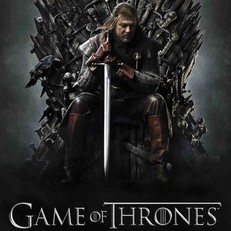 This week, I'm writing the first in a new category of blog posts. I want to examine some of the creative influences in my life that have effected my novel ANOM: Awakening. For this initial offering, I'm going to talk about the impact of George R. R. Martin's fantasy series, A Song of Ice and Fire. At this point, it would be prudent to mention that, for better or worse, my novel is not really like George R. R. Martin's A Song of Ice and Fire at all. For one thing, Martin's novels fall squarely within the fantasy genre. ANOM: Awakening, does not. The closest I can get is by labeling my book as Science Fiction, but even this is a stretch. ANOM: Awakening is more like a really long comic book without the pictures. Secondly, Martin's writing is mega-successful and has spawned a multi-media phenomenon with the runaway success of HBO's Game of Thrones. Last I checked, I'm still waiting to self-publish my first novel on Amazon. The bottom-line is, I am NOT trying to equate my book with the novels of George R. R. Martin. That being said, I did learn an important lesson from Martin, and that's the issue I would like to explore today. If you are unfamiliar with Martin and his novels, the HBO series Game of Thrones is a good place to start. This served as my own introduction, but after the first season of the television show, I turned to the novels themselves. Just like you would expect, the books contained A LOT more detail and backstory than could ever be shown through the television. One of the aspects of Martin's novels I most enjoyed (and something that, until recently, has been lacking from the HBO series) is a sense of history. You understand through the novels that Martin's world of Westeros existed for a very long time before we ever read the first word on the first page. Throughout the series, characters constantly reference a well-known history that readers never get to experience first-hand. Even so, that history is always there-- and it influences characters and events in a way that the reader can't understand at first. Martin reveals that history slowly -- half a memory told in one chapter, a reference to some important battle somewhere else -- and the reader is left hungry for more. I distinctly remember wishing for a series of prequels about Robert's Rebellion (although that might be asking a bit much, as Martin has yet to finish the actual Song of Fire and Ice series). Ultimately, the lesson I learned is that a story doesn't have to begin on the FIRST day. I can start writing in the middle of an adventure, and trust in the patience of my readers to give me enough time to fill in the blanks. Rationing out this history in carefully proportioned revelations may even prove more satisfying in the end. Writing any story with a rich history (even if that history remains hidden for a time from the reader) lends a gravity to all the characters and their choices. The reader will understand the characters BECAUSE of that history, and in my own experience with A Song of Fire and Ice, that's a very satisfying experience, indeed. Now I only need to sell that to HBO. |
Archives
June 2020
Categories |
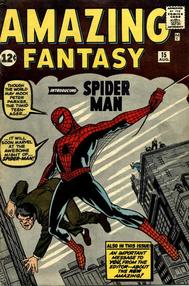
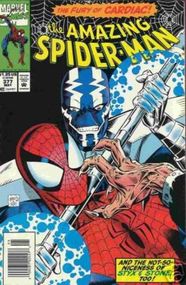
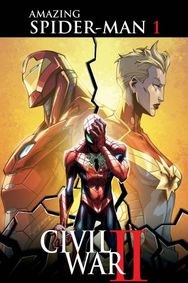


 RSS Feed
RSS Feed